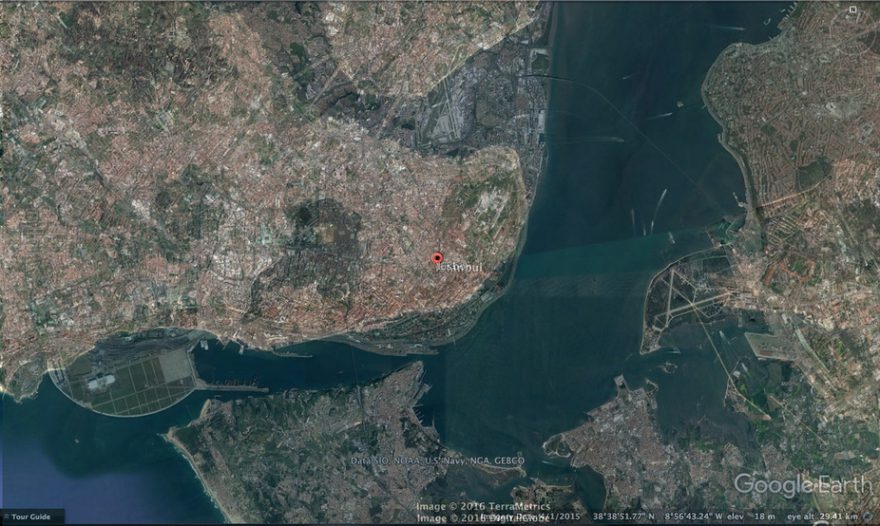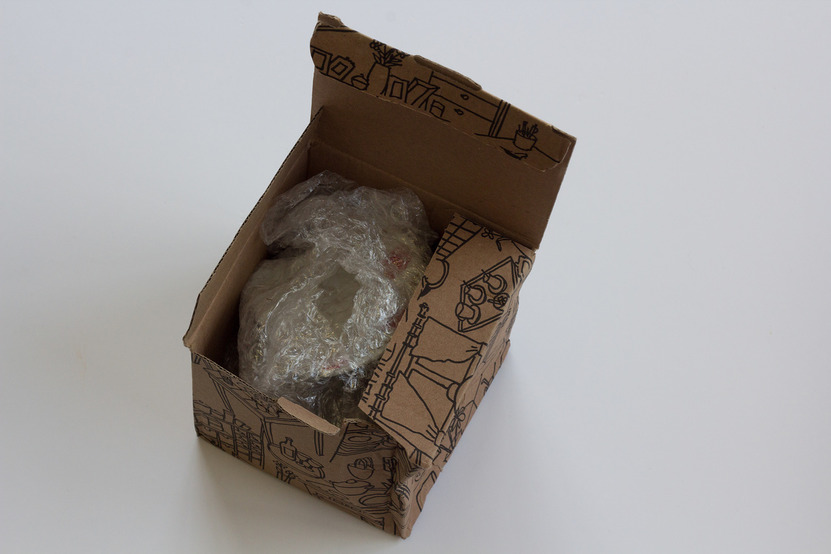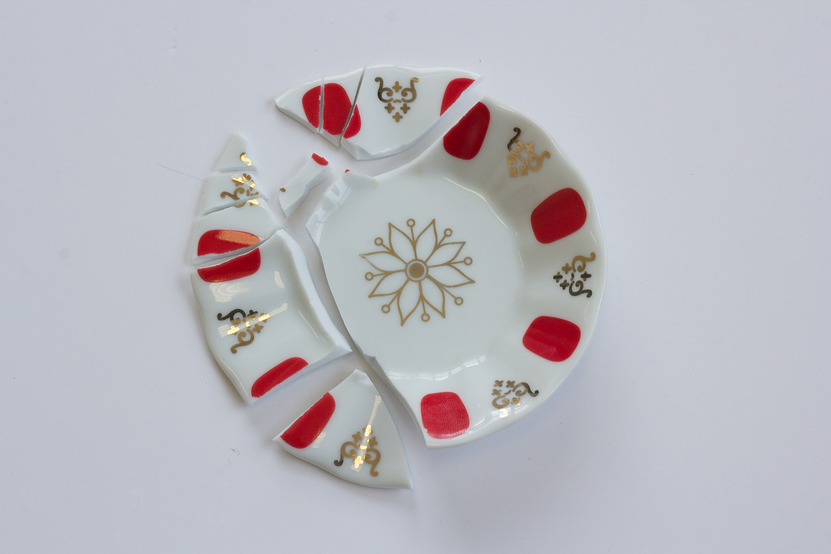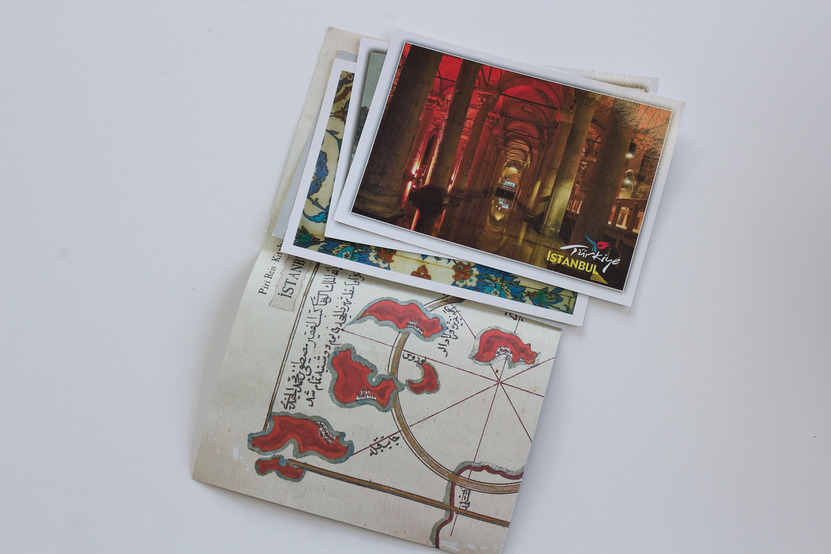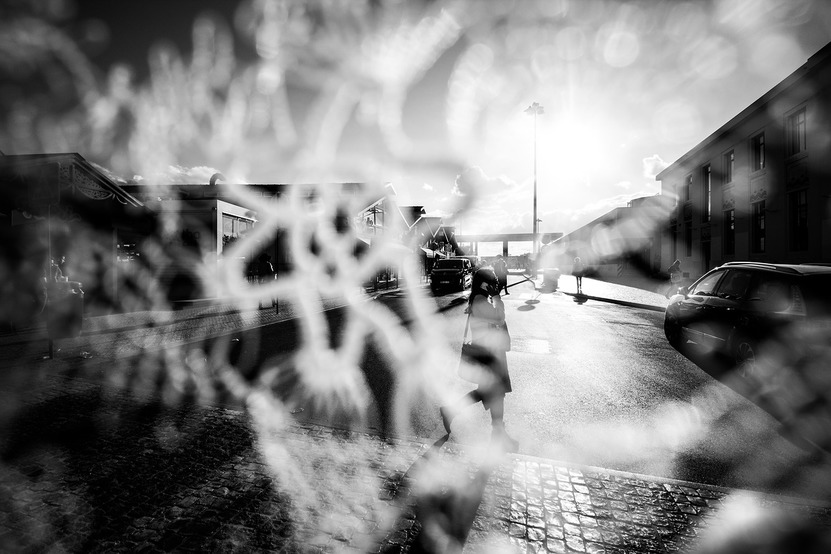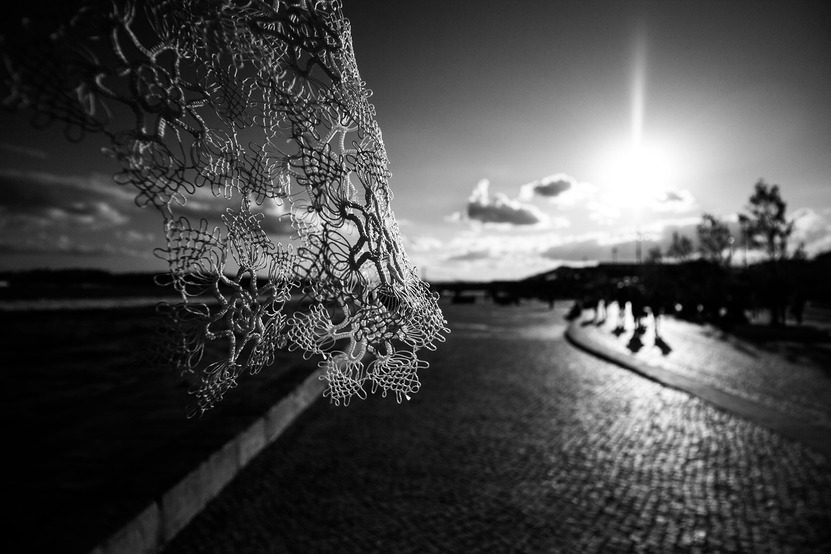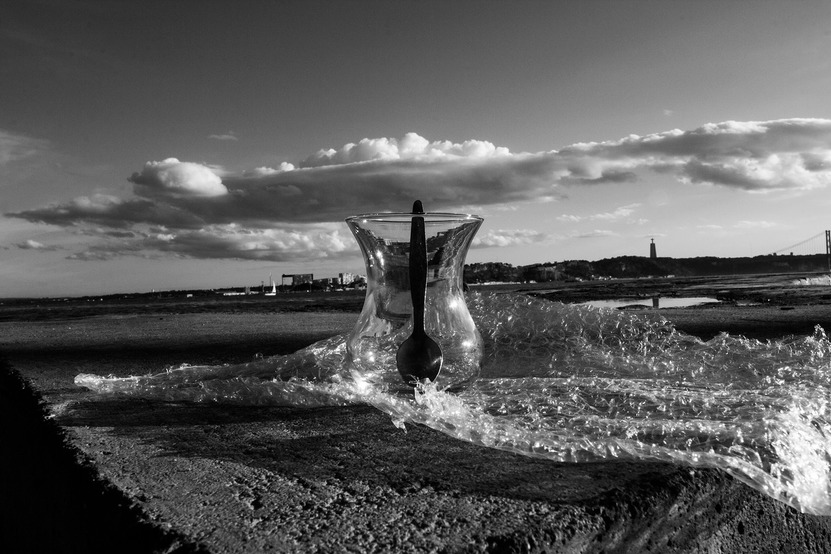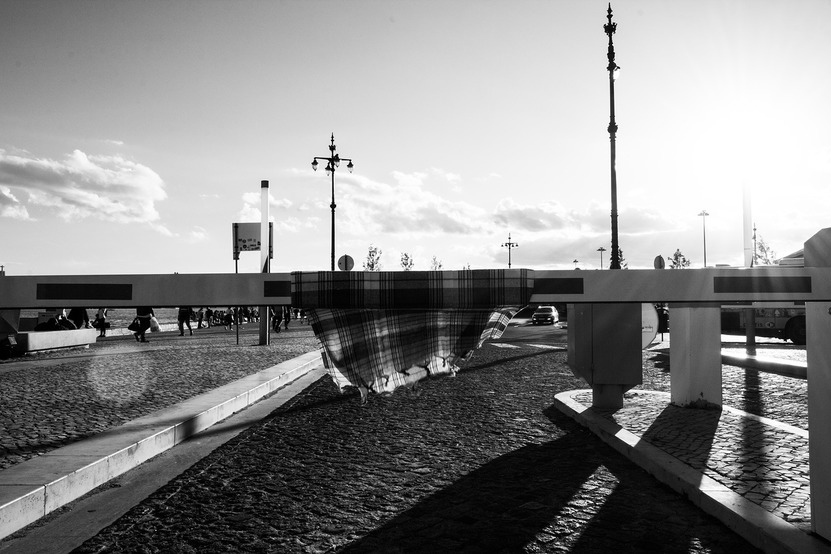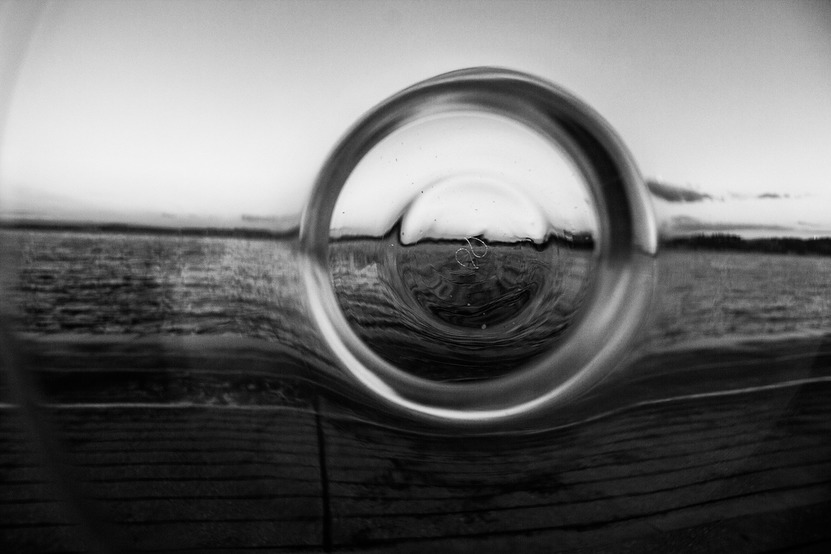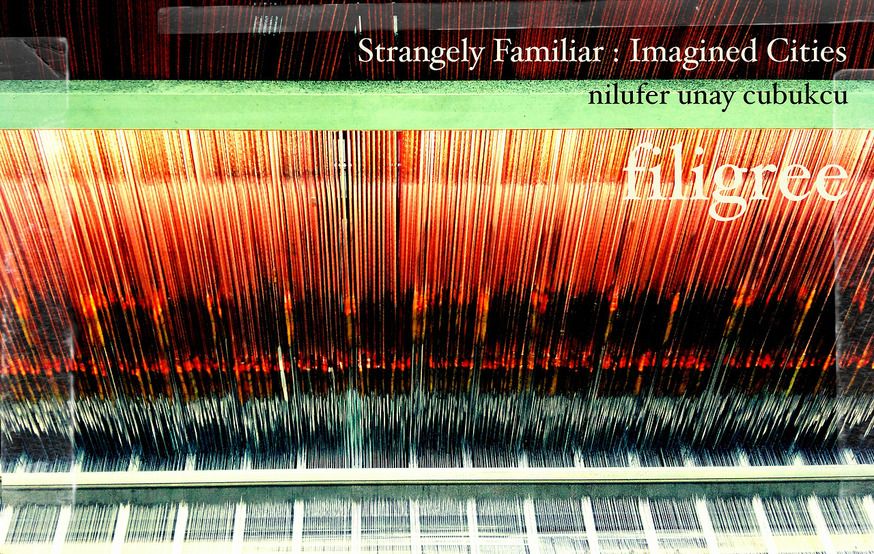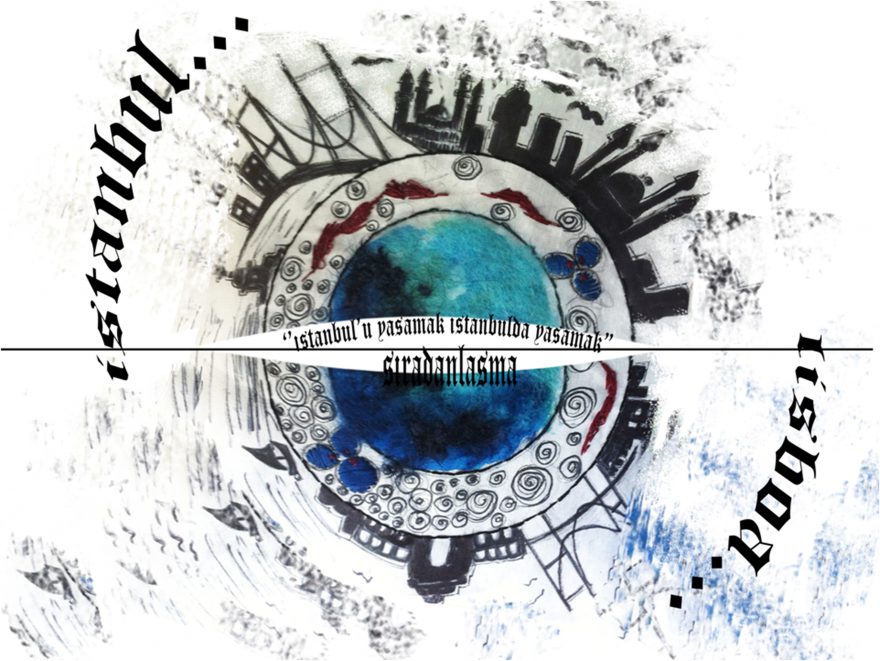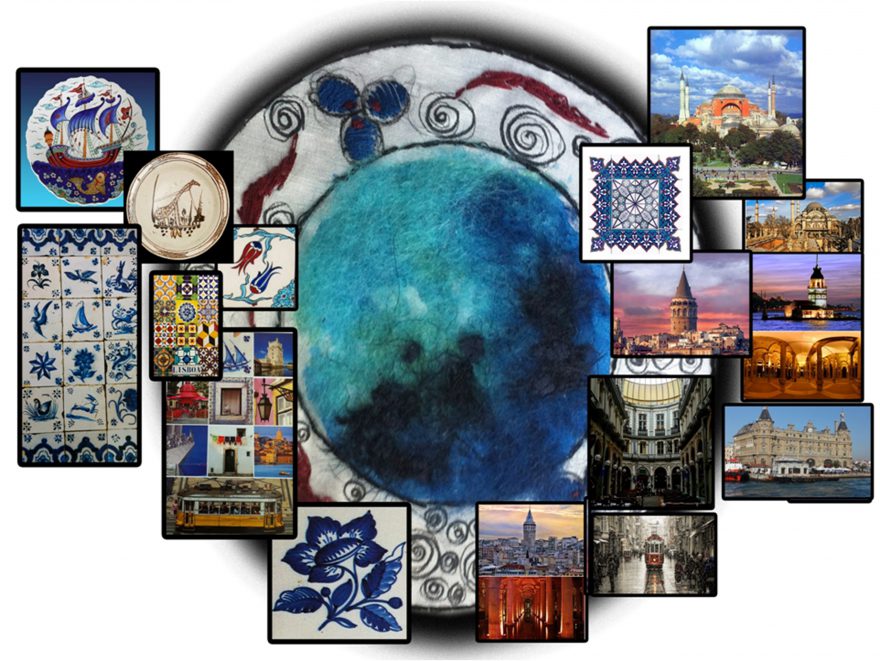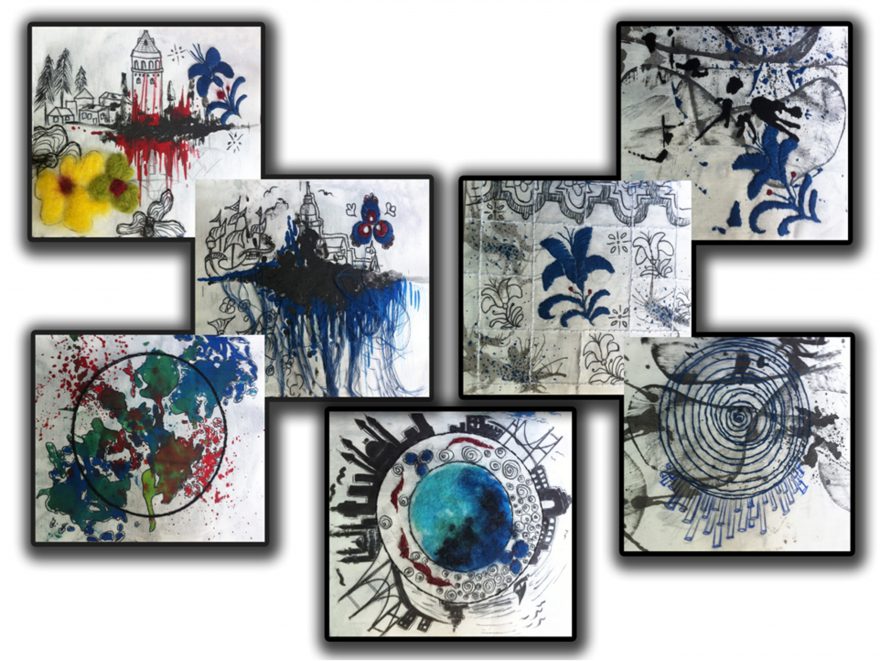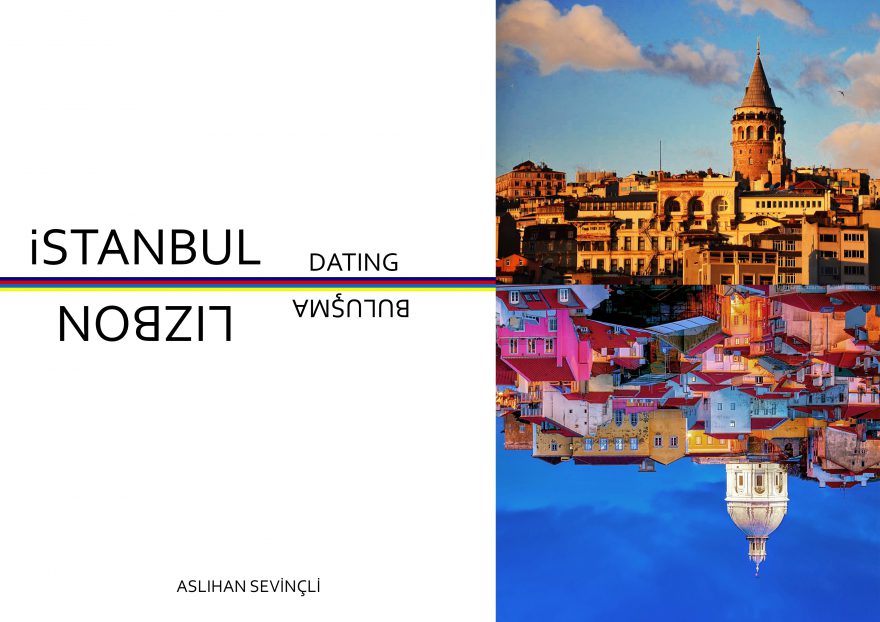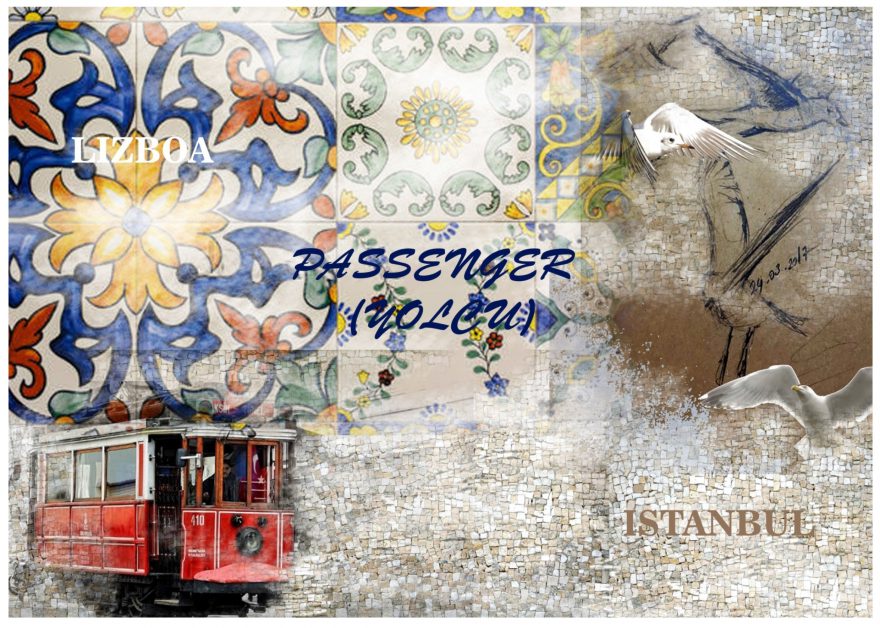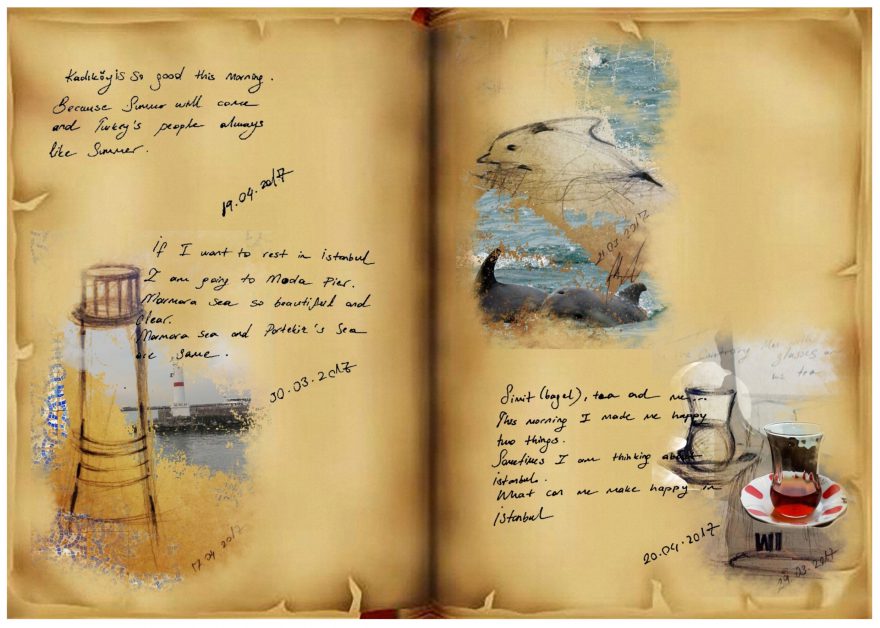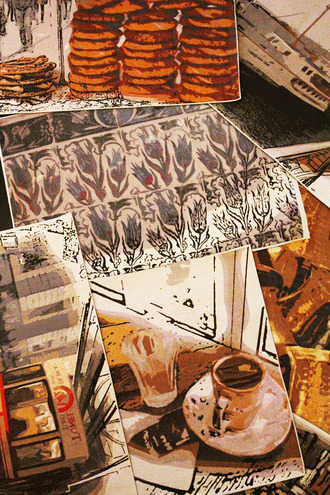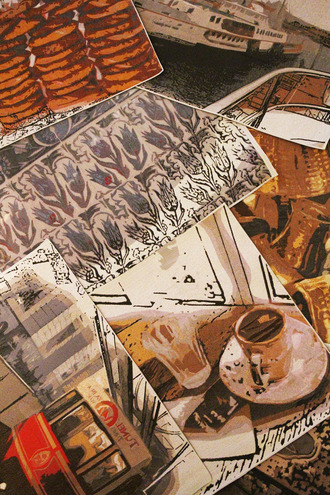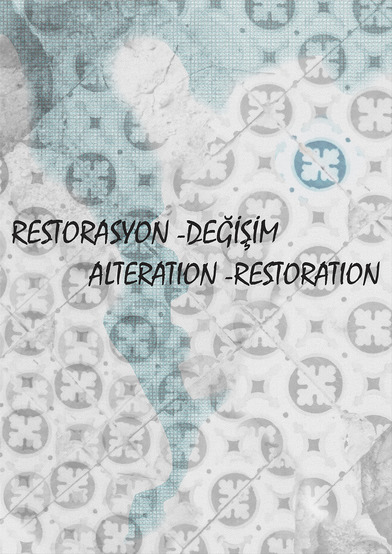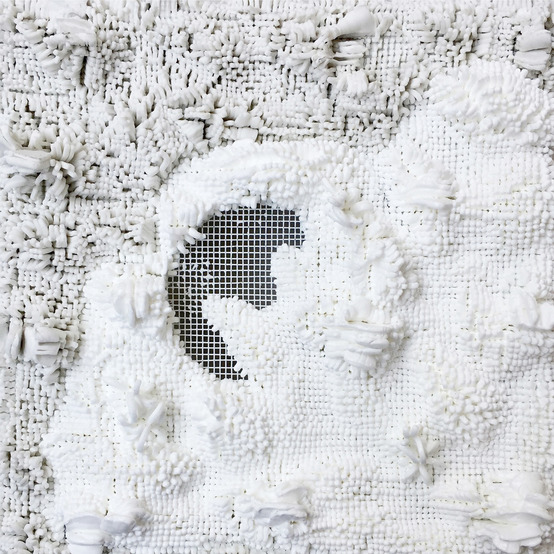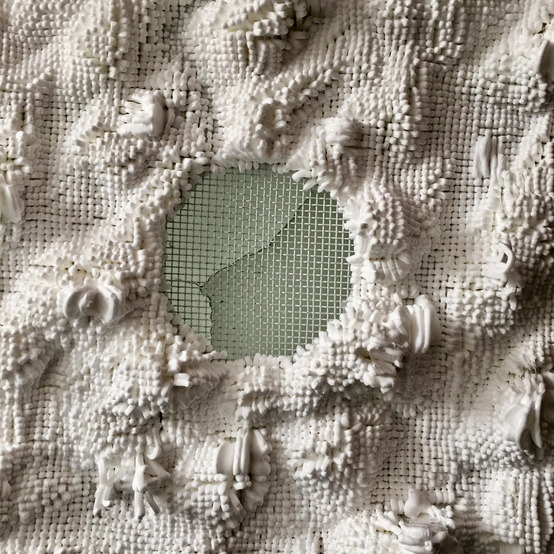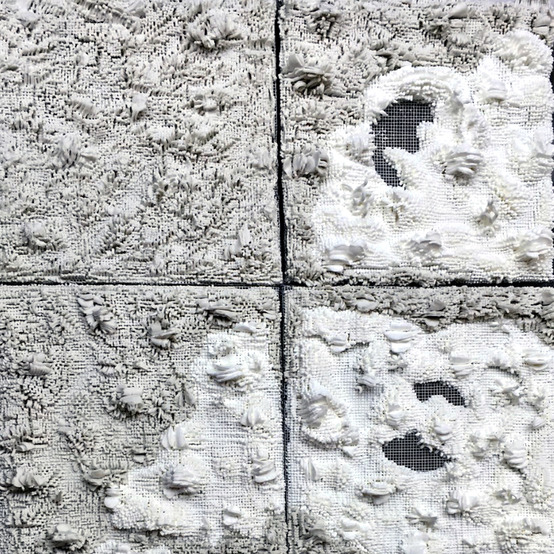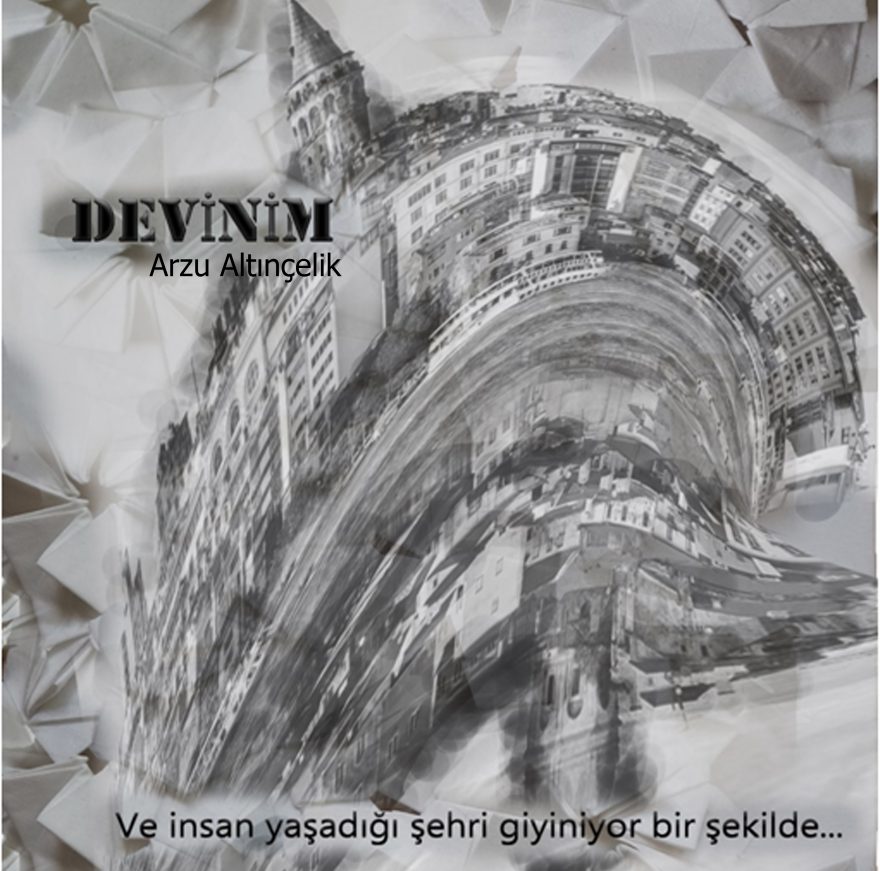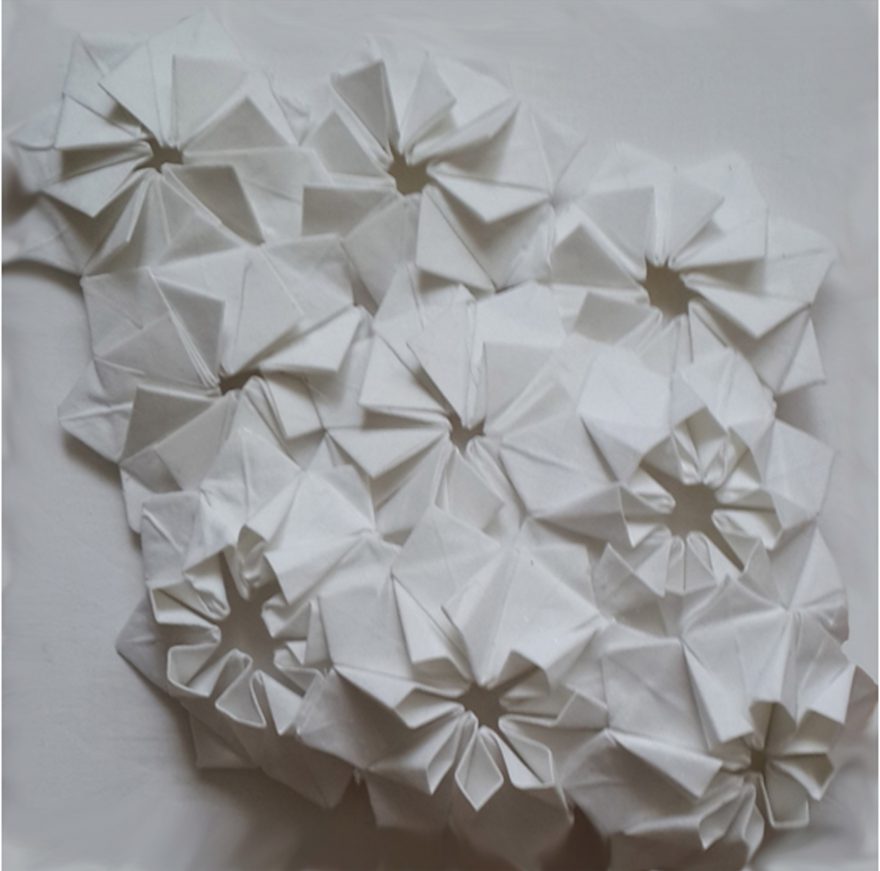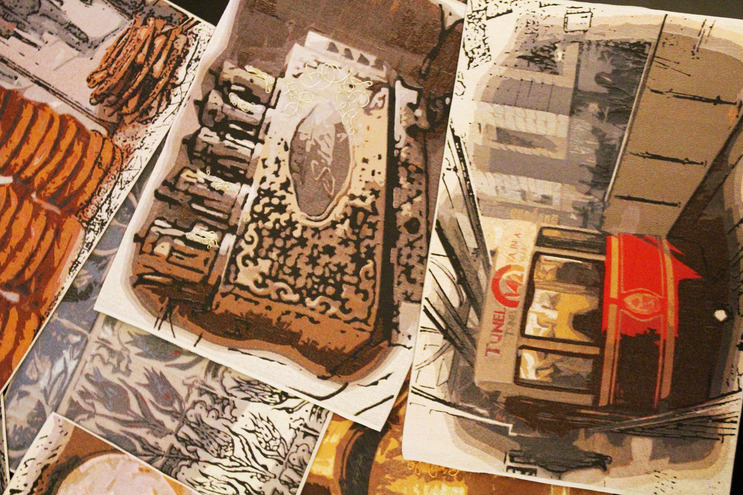Atölye Adı: Strangely Familiar: Imagined Cities
Atölye Yürütücüsü: Teresa MatosPereira, Yrd. Doç. Vildan Tok Dereci, Öğr. Gör. İrem Sabanuç Gönül, KatiaSá, Silvia Castro, SandraAntunes, CatiaRijo
Süresi: 2 Hafta
Tarihi:
Yeri: Marmara Üniversitesi Güzel Sanatlar Fakültesi
Kontenjan: Doldu.
Başvuru: —–
INTRODUCTION/ GOALS OF THE PROJECT
Strangely familiar: Imagined Cities is a project to be developed through a workshop format, involving the paradox between strange and familiar spaces within two cities, Lisboa (LX) and Istanbul (IST).
- Can one recognize familiarity in a strange place?
- Can one recognize strangeness in a familiar place?
These two questions are the starting point to invite participants to artistically reflect upon multiple layers such as the geographical/ cultural/ social/ identity/ imagery, etc… layers which compose experienced and imagined territories.
Based in these two concepts: strangeness and familiarity, participants of both cities will build a collection of images/signals of the selected area of each city and integrate them in two digital participatory maps.
By the end of the workshop, the two maps will form a virtual/digital tapestry, as digitally, the group of participants will have usen and cross many media to express in a symbolical sense, the crossing and intertwining of perspectives, just like in a weaving process, an immaterial one.
METHODOLOGY
Two working groups (teachers and students from LX and IST) will identify their own strategies to relate to the cities, electing a neighbourhood/ quarter of the city which they inhabit and collect images, signals, sounds, etc…) elements that may establish a conceptual bridge with the city’s partner. Meaning, to create a relational imagery, imagining Istanbul in Lisboa and vice versa.
WORKING GROUPS
Lisbon working group (LX)
Teachers:
Teresa Pereira (coordinator)
Cátia Rijo
Kátia Sá
Sandra Antunes
Sílvia Castro
Students: A working group of students from the Visual Arts Course (ESELx) will be established
Istanbul working group (LX)
Teachers: Vildan Tok
Students: To be defined by Marmara
WORKSHOP’S STAGES
- Appropriation of a digital collaborative platform which will be explored and worked by each working group (LX Territory + IST Territory);
- Teaming: LX/ IST – teachers and students;
- Developing group strategies to define the contexts/territories to do the work in each city;
- Online Briefing;
- Collecting and producing materials;
- Inserting data and mapping in the Platform both territories;
- Each team will select and print stickers and then exchanging the stickers with the other working group;
- Identifying places in the territory that resembles or might be familiar with the received data and integrate the sticker in the new/familiar context, producing new images in context.
- Inserting the images in the platform and in the map of the original city.
- Creation of a “digital tapestry” with the collected data by both groups, based on the results of the participatory mapping.
Project’s presentation at the Triennial — Screening of the Digital Tapestry at the Triennial.
RESULTS/ DISSEMINATION/INTERACTION
- Collaborative working digital platform to aggregate the multimedia contents — (images/ audio and video) of both groups.
- Screening of the Digital Tapestry at the Triennial.
- Possibility of the process replication, opening the project to the public as participant – broadening the participatory process as concept.
Public presentation of the project in Lisboa (seminar, exhibition).
TERESA MATOS PEREIRA (1974)
Teresa Matos Pereira is a Visual Arts Professor| BA Visual Arts and Technologies Program Coordinator at the Lisbon Polytechnic Institute.
PhD in Fine Arts | Painting; MA in Art Theory; BA in Visual Arts- Painting – by the Faculty of Fine Arts at the University of Lisbon.
Integrates the Research Center in Fine Arts at Faculty of Fine Arts of Lisbon (CIEBA) and has published several articles regarding modernist art in Portugal and postcolonial theory in visual arts.
Since 1998 develops her artistic research, along with her fellow partners on Visual Arts Training and art education research methodologies.
KATIA SA (1977)
Visual Artist, lecturer and researcher (CIED — ESELx IPL).
BA in Sculpture, 2000, Master in Multimedia Art, 2007, PHD in Multimedia in Education, 2013.
Currently, is an Assistant Professor at Polytechnic Institute of Lisbon.
Interested on education/ investigation through artistic practice that contextualize culture, art and inclusion, individual or in communities.
She works in collaborative processes with other visual artists, with multimedia — photography, video, audio and installation. With musicians of improvisation, have projects where is using real time processing of video and images, based on interactive systems programming.
SILVIA CASTRO (1976)
Visual artist, lecturer and researcher (CIEd – ESELx IPL).
BA in painting (FBAUP), post-graduated in Fine Arts (Piet Zwart Institute – Institute for Postgraduate Studies and Research of the Willem de Kooning Academy Hogeschool
Rotterdam) and Master of Fine Arts (University of Plymouth). Is an Expert in Visual Arts and Media Production since 2012; presently developing her PhD Education Thesis, at FCEUP (Faculty of Psychology and Education Science).
Currently is an Assistant Professor at the Polytechnic Institute of Lisbon (IPL).
She has interest in several areas, such as urban crafts and traditional technologies; creative processes, design thinking; collaborative processes; street art.
SANDRA ANTUNES (1974)
Sandra Antunes is a Product Design teacher | BA of Visual Arts and Technologies, at Lisbon Polytechnic Institute.
Presently, is PhD student in Design/History of Material and Immaterial Culture; postgraduate in Product Design (IADE-U); MA in Art Theories and BA in Visual Arts-Painting (Faculty of Fine-Arts at the Lisbon University).
She integrates the research group “Mapping Design ─ History, Products, Culture and Identity”. Within Art Theories she published on drawing and peninsular counter-reformation conception of body. Since 1998 she develops her artistic research. At the BA in VAT she carries research, with fellow partners, on arts|design teaching and research methodologies.
CATIA RIJO
Cátia Rijo has a Phd degree in Design by FAUL; previously, made a Masters in Graphic Design and is BA in Visual Design, both in IADE.
Currently is a Professor at the BA in Visual Arts and Technologies at the Lisbon Polytechnic Institute teaching Design subjects. She is also a researcher at CIAUD, since 2011, and in CIED, since 2015. Regularly reviews and publishes articles in national and international scientific journals and participates in national and international conferences. She is often invited to argue masters and doctoral theses.



